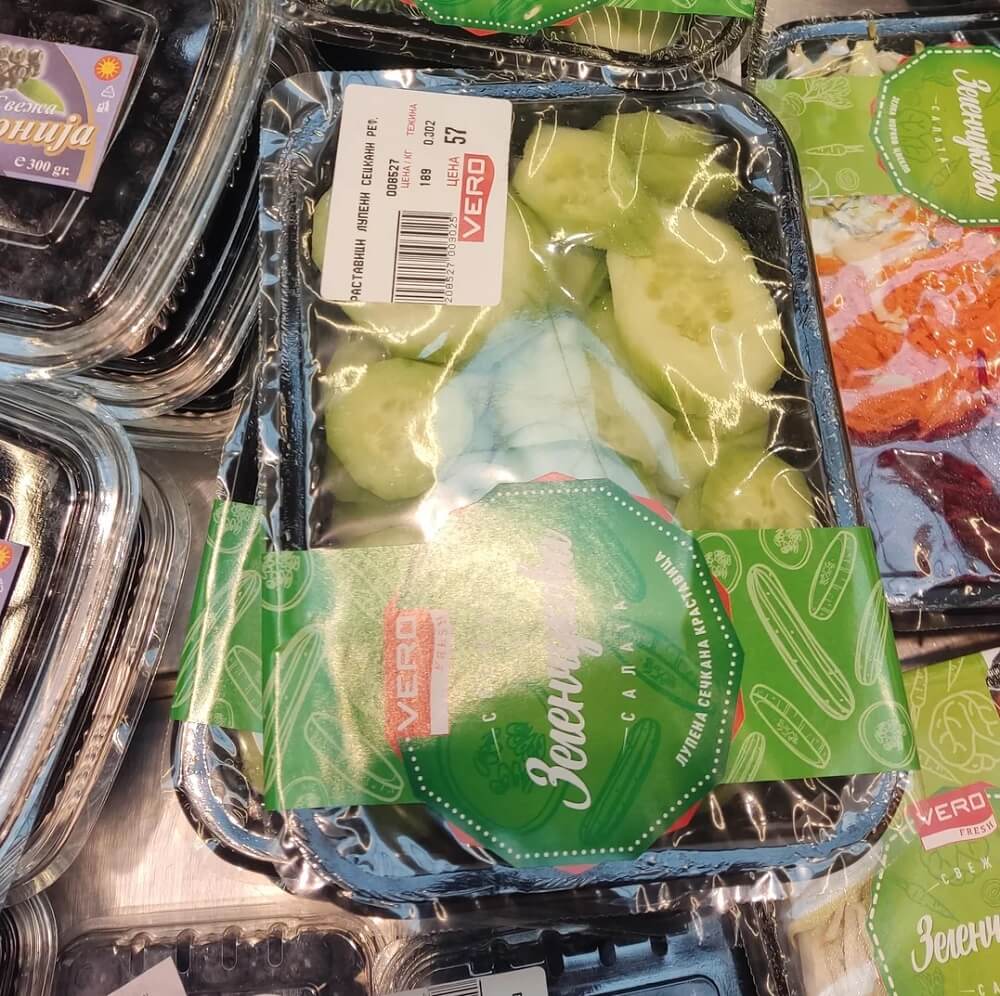A plastic-wrapped cucumber might not seem like breaking news, but when a photo of pre-sliced cukes hit Reddit from Europe, it sparked a conversation about the true cost of convenience.
The image, showing individually packaged cucumber slices from a North Macedonian grocery store, resonated with shoppers worldwide who've noticed similar packaging choices in their local stores.

What's happening?
"Never thought I'd see it in my poor, $500 average salary country," wrote a Reddit user who recently shared a photo of plastic-wrapped, pre-sliced cucumbers at a Vero grocery store in North Macedonia.
The post, which appeared in the r/Anticonsumption community, highlighted growing concerns about excessive packaging reaching markets where monthly wages make such convenience items particularly questionable.
"I hate this in my country (USA)," commented another user. "It's just so wasteful. The produce goes bad much faster after being cut, there's more packaging garbage, and it's more expensive."
Why is pre-cut produce concerning?
Pre-cut produce creates several environmental challenges affecting our planet and our wallets.
When fruits and vegetables are sliced and packaged, they typically spoil faster than their whole counterparts, potentially leading to more food waste. The plastic packaging used to preserve these pre-cut items adds to the growing burden of single-use plastics in our environment.
Additionally, pre-cut produce often comes with a marked price increase, making healthy eating expensive for consumers.
Is Vero doing anything about this?
While Vero shoppers may take issue with these pre-cut convenience products, the company has shown some commitment to customer contentment in other areas. In 2021, the city of Skopje named Vero the best grocery store of the year, citing its commitment to customer service and overall satisfaction with the shopping experience.
🗣️ Should grocery stores donate food that's past its sell-by date?
🔘 Yes — as long as it's not bad 🤢
🔘 Yes — but only certain foods 🥫
🔘 Only if it doesn't cost the store 💸
🔘 No — it could lead to problems 👎
🗳️ Click your choice to see results and speak your mind
However, their continued use of plastic packaging for pre-cut produce suggests room for improvement in their waste reduction efforts.
What's being done about excessive produce packaging more broadly?
Innovative solutions are already helping shoppers save money while reducing plastic waste.
Many grocery stores now offer package-free sections where customers can purchase exactly what they need. Some retailers have begun using compostable packaging materials for pre-cut items, while others are experimenting with plant-based wrapping that breaks down naturally.
Forward-thinking grocers are also balancing convenience with sustainability. For example, some stores now offer on-site cutting services where customers can have their produce prepared while they shop, eliminating the need for excessive packaging. Others provide reusable containers that customers can bring back for future purchases.
For shoppers who appreciate the convenience of pre-cut produce but want to make earth-friendly choices, storing whole fruits and vegetables properly at home can make them just as accessible. Using reusable produce storage containers can keep items fresh longer while eliminating single-use plastics. Plus, taking a few minutes to prep produce at home typically costs less than buying pre-cut options.
Join our free newsletter for good news and useful tips, and don't miss this cool list of easy ways to help yourself while helping the planet.









